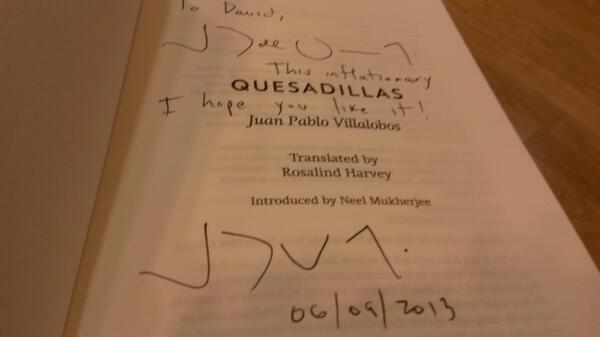 I’ve decided that I want to read the whole Man Booker shortlist in advance of the winner being announced on 15 October. The list has seemed interesting to me all along, and the more I’ve thought about it, the more I’m inclined to engage with it. After all, it contains my favourite book of the year so far; I’m curious to find out more about what else the judges selected.
I’ve decided that I want to read the whole Man Booker shortlist in advance of the winner being announced on 15 October. The list has seemed interesting to me all along, and the more I’ve thought about it, the more I’m inclined to engage with it. After all, it contains my favourite book of the year so far; I’m curious to find out more about what else the judges selected.
Anna of A Case for Books has set up a Booker shadowing group on Twitter, with which I’m planning to join in. We’ll be tackling the books in increasing order of length, which means starting with Colm Tóibín’s 101-page volume The Testament of Mary. Of all the titles shortlisted for this year’s Booker, the Tóibín is the one that interested me the least, one that I would never have chosen to read in the normal course of things. I have to say, though, that I was pleasantly surprised by it.
As its title suggests, The Testament of Mary is an account of Jesus’ adult life and death, narrated by his mother. As the book opens, Mary is living in exile, guarded by two of her son ‘s disciples, who want to record her story – or some version of it, at any rate:
I know that [one of the disciples] has written of things that neither he saw nor I saw. I know that he has also given shape to what I lived through and he witnessed, and that he has made sure that these words will matter, that they will be listened to. (p. 5)
The last part of that quotation is particularly telling: Mary’s story, as told by her, does not matter to her guardians or the growing movement they represent – partly because it is a woman’s account, partly because it does not fit the grander narrative they wish to create. While her son (Mary no longer feels able to use his name) is becoming a charismatic leader, she remains distanced from the fervour. Even when she witnesses the resurrection of Lazarus, Mary’s account evokes no sense of the miraculous; all of that is happening for other people, not her. Mary is the outside observer who can see that, beneath the spectacle, Lazarus is still sick and the revellers have moved on to new distractions; she is the mother who feels impossibly distanced from her son.
Tóibín presents this situation in a way that makes it transcend its immediate context. With social change, the world suddenly opens up (‘People, both men and women who had nothing, began to talk about Jerusalem as though it were across the valley instead of two or three days’ journey,’ p. 14), and Jesus decides to leave home after a series of earnest discussions with some acquaintances. This could be any son (or daughter, for that matter) heading out into the world having found a new ideology, and Mary’s concerns those of any mother watching her child leave and change.
The disciples minding and interviewing Mary are seeking to tell the story of Jesus as redeemer, Son of God. They’ll do that regardless of what Mary tells them.; her story is deemed unfit for the ages. But Tóibín’s novel suggests the importance of a more personal view, in a quietly powerful character study.
Elsewhere
Some other blogs on The Testament of Mary: A Case for Books; Dan Hartland; Booker Marks;
Colm Tóibín’s website
 The evening was hosted by the excellent
The evening was hosted by the excellent 

 As a way of setting out a novel’s stall, this opening sentence works rather well:
As a way of setting out a novel’s stall, this opening sentence works rather well:
 Maria Semple, Where’d You Go, Bernadette (2012)
Maria Semple, Where’d You Go, Bernadette (2012)
 Matt Delito, Confessions of a Police Constable (2013)
Matt Delito, Confessions of a Police Constable (2013) Rachel Joyce
Rachel Joyce
 Rituals (1980; translated by Adrienne Dixon, 1983), which begins in 1963, when Inni Wintrop is coasting through life, picking up women and making money by trading art and shares. When his wife Zita leaves him, Inni tries and fails to commit suicide – then Noteboom takes us back and forward, to encounter other characters who are stuck in their own behaviour patterns.
Rituals (1980; translated by Adrienne Dixon, 1983), which begins in 1963, when Inni Wintrop is coasting through life, picking up women and making money by trading art and shares. When his wife Zita leaves him, Inni tries and fails to commit suicide – then Noteboom takes us back and forward, to encounter other characters who are stuck in their own behaviour patterns.
Recent Comments